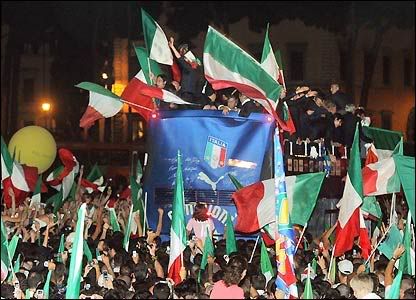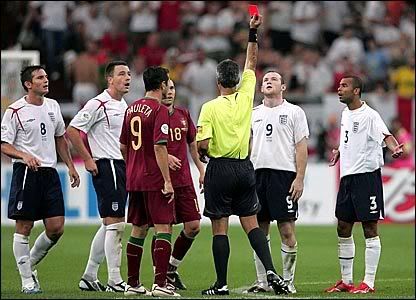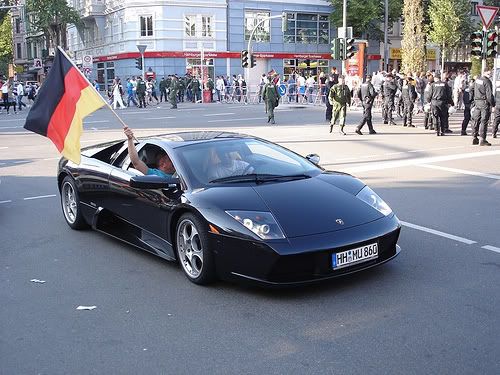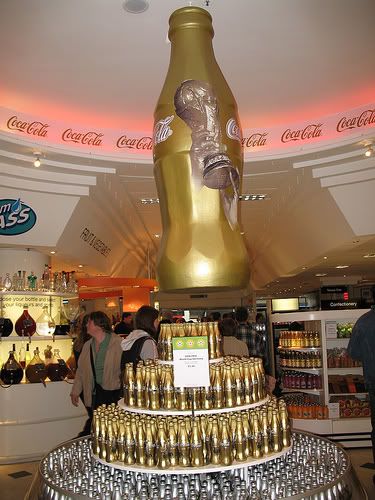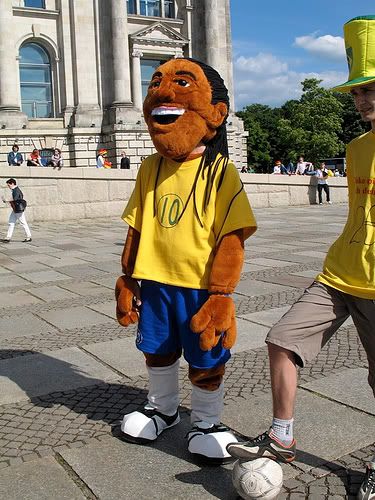|
Soccer at its best |
|
|
.: Fifa World Cup'06 :.
. : Recent Posts : . . : Archives : . .: Live from Germany :.
|
. : Author : .
. : Categories : .
All Time Stats .: Nut shell :.
 . : Credits : .
@ Epsilon Interactive Search Engine Optimization and Free Submission |
|
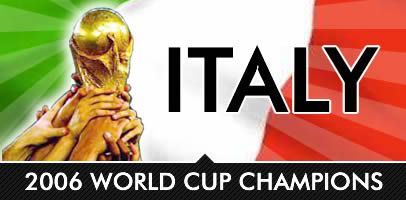 Thursday, June 29, 2006Eriksson v ScolariSven-Goran Eriksson's latest date with Luis Felipe Scolari gives new meaning to the adage that opposites attract. The two wildly different characters will go head-to-head for the third time in as many tournaments when England play Portugal on Saturday. And Eriksson will be hoping it is third time lucky for him and his England side. Scolari's Brazil knocked England out at the quarter-final stage of the 2002 World Cup and he repeated the feat with Portugal in the last eight at Euro 2004. To add extra spice to the rivalry, Scolari was the man the Football Association wanted to succeed the Swede as England boss. It is little wonder that Saturday's match is being billed "Duel in the Dug-Out III". BBC Sport pundit Leonardo, who played under Scolari for Brazil and was at AC Milan when Eriksson managed Lazio, says it is difficult to think of two more different coaches. "Eriksson tries to transmit what he wants from the players in a calm way, whereas Scolari is a motivator with big energy," Leonardo told BBC Sport. "Eriksson had a reputation in Italy for being very intelligent, a gentleman with a lot of class. He tries to create and transmit his strategies in training rather than during the match, when he is always very calm. "In contrast, Scolari is a big character and is not so diplomatic. Like Eriksson, he knows about tactics and systems, but motivation is his main strength. He's created a winning spirit with Portugal, one where they're willing to fight to the end." Alberto de Silva, a highly-respected football journalist for the Portuguese newspaper Bola, is also well aware of the differences between the two managers. De Silva has observed Scolari at close quarters since he took charge of Portugal and met Eriksson several times when the Swede was manager of Benfica in the 1980s. "Eriksson had never been a player of any repute and wanted to prove that an intellectual could succeed in football - he was a thinking manager," De Silva told BBC Sport. "And he had amazing success. He won three league titles and took Benfica to the finals of the Uefa and European Cups. That really was a phenomenal achievement. "Tactically and in terms of preparation and motivation, he was absolutely first class. I met him several times and he was very nice, very gentle. The players liked him because he allowed them to live with freedom. Scolari is a disciplinarian - in a friendly way - who always gets what he wants from the players. He forgets the reputation of players and is not afraid to put them in their place." Although De Silva had the highest regard for Eriksson when he was at Benfica, he argues the Swede is no longer the same manager. "You can't compare the Eriksson who managed Benfica with the Eriksson you see today," De Silva said. "Then he was younger, more ambitious and driven to succeed. He has been changed by age, experience, money and women. "He still has a big house in Cascais (a beach resort close to Lisbon) and a lot of people speculated he might come to Benfica after the World Cup. But - and this is very revealing - the club's directors were not keen on him returning. They decided he wasn't the same coach who was here before. In contrast, the ambition is still there with Scolari. He is desperate to become the first coach to win the World Cup with two different countries. Eriksson is a dead man, not alive any more. Scolari is a man full of life, who is inspiring the Portugal team as no-one has before. I wish Eriksson could do the same with England, but I don't think he can because he does not have the spirit to transform the players." Leonardo does not agree with this damning verdict of the Swede. He thinks English football is hampered by a negative mindset, but insists this is a national trait rather than the fault of Eriksson. "England need to play with more energy and less fear," said the 1994 World Cup winner. "They need to take risks and demonstrate to the opposition that they are confident, because they are very good - Lampard, Gerrard and Rooney are excellent players who are respected throughout the world. You can't blame this negative mentality on Eriksson, because I've seen England teams display it for a long time, long before Eriksson came on the scene. It could be because it's a long time since they won the World Cup. But they need to create that winning mentality. Brazil have it - they really believe in themselves and expect to win the World Cup every time."
|



